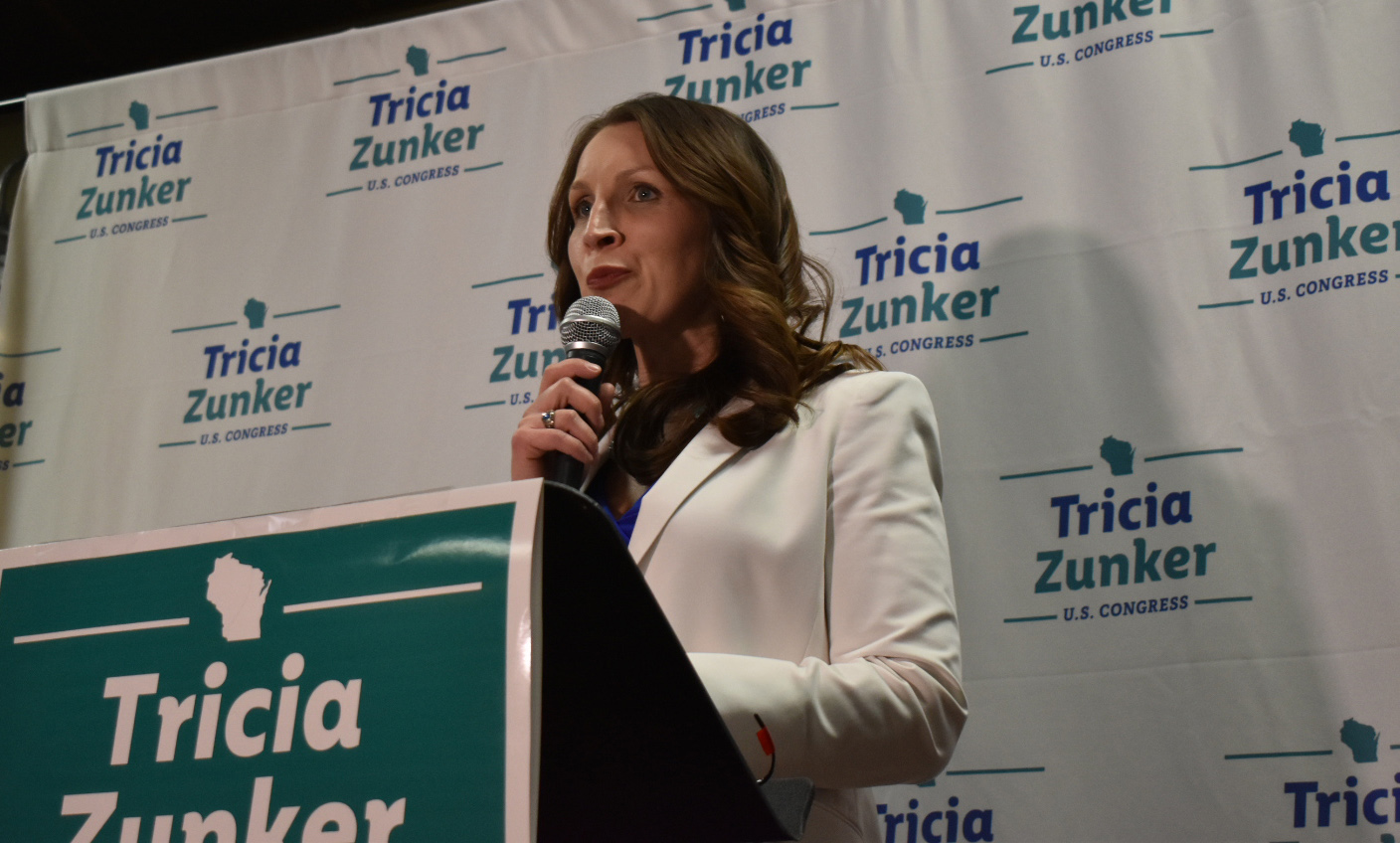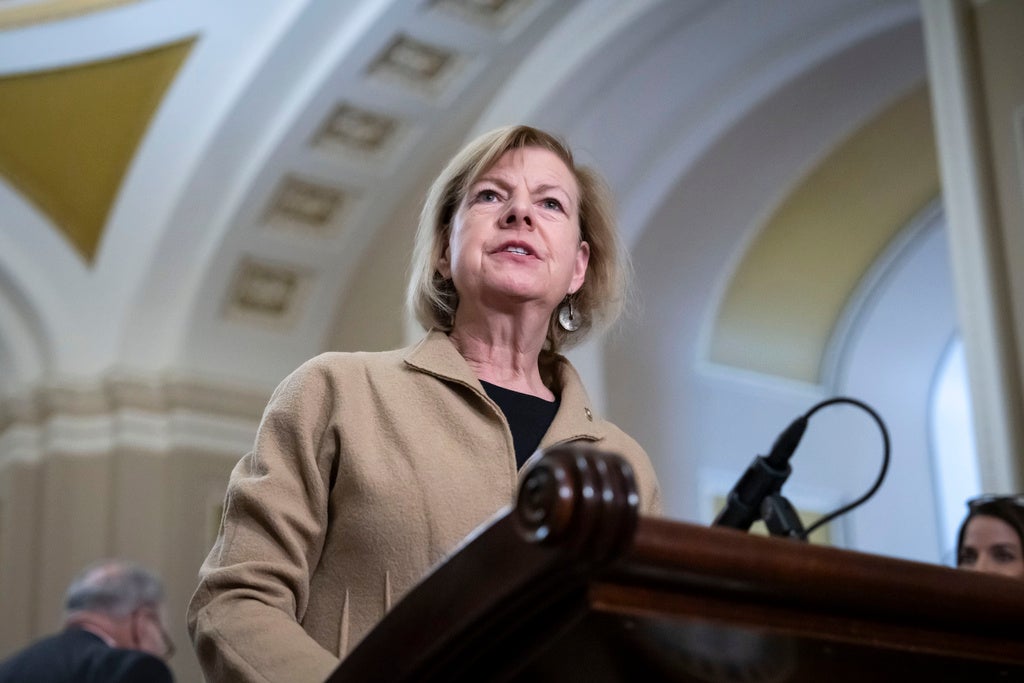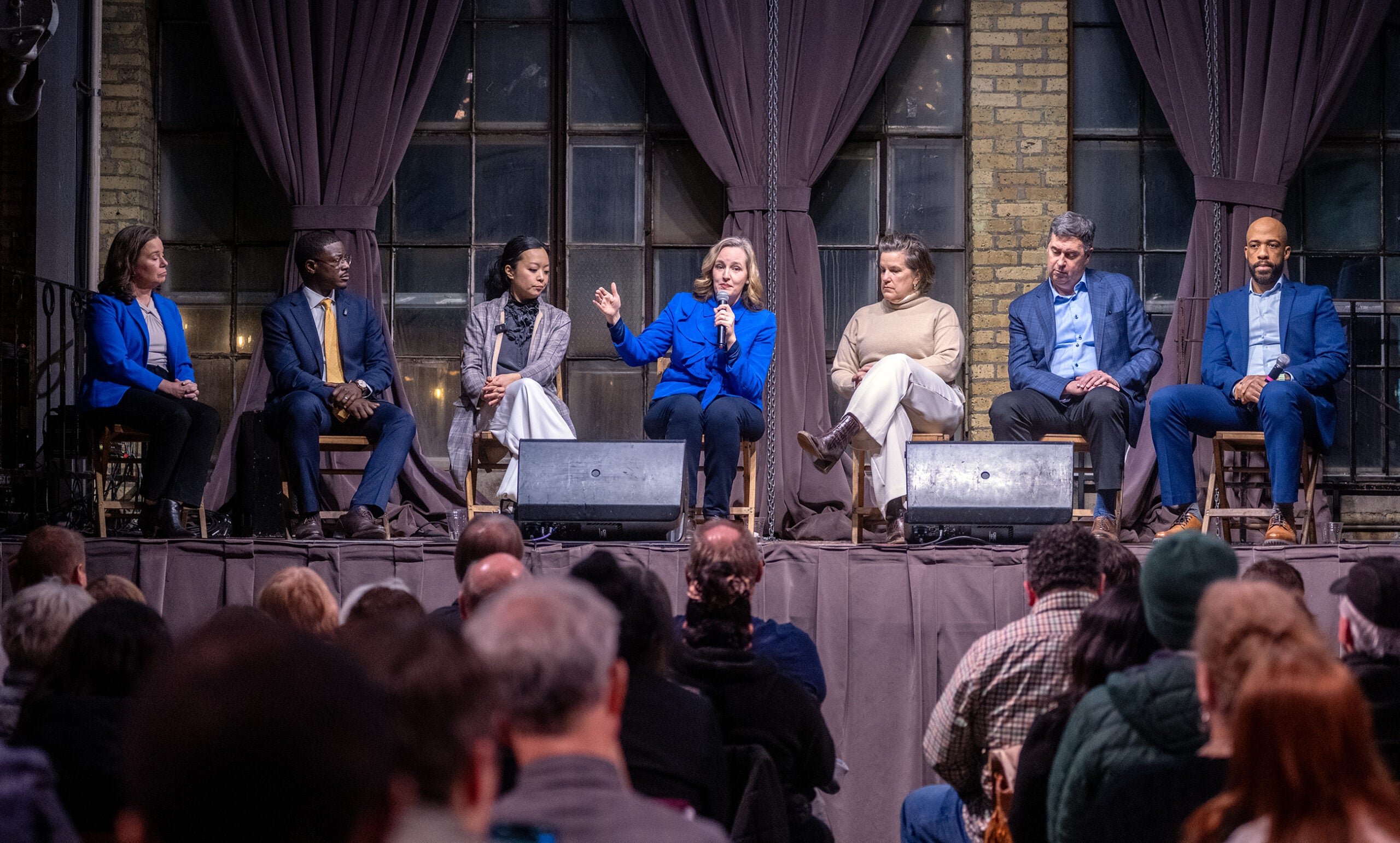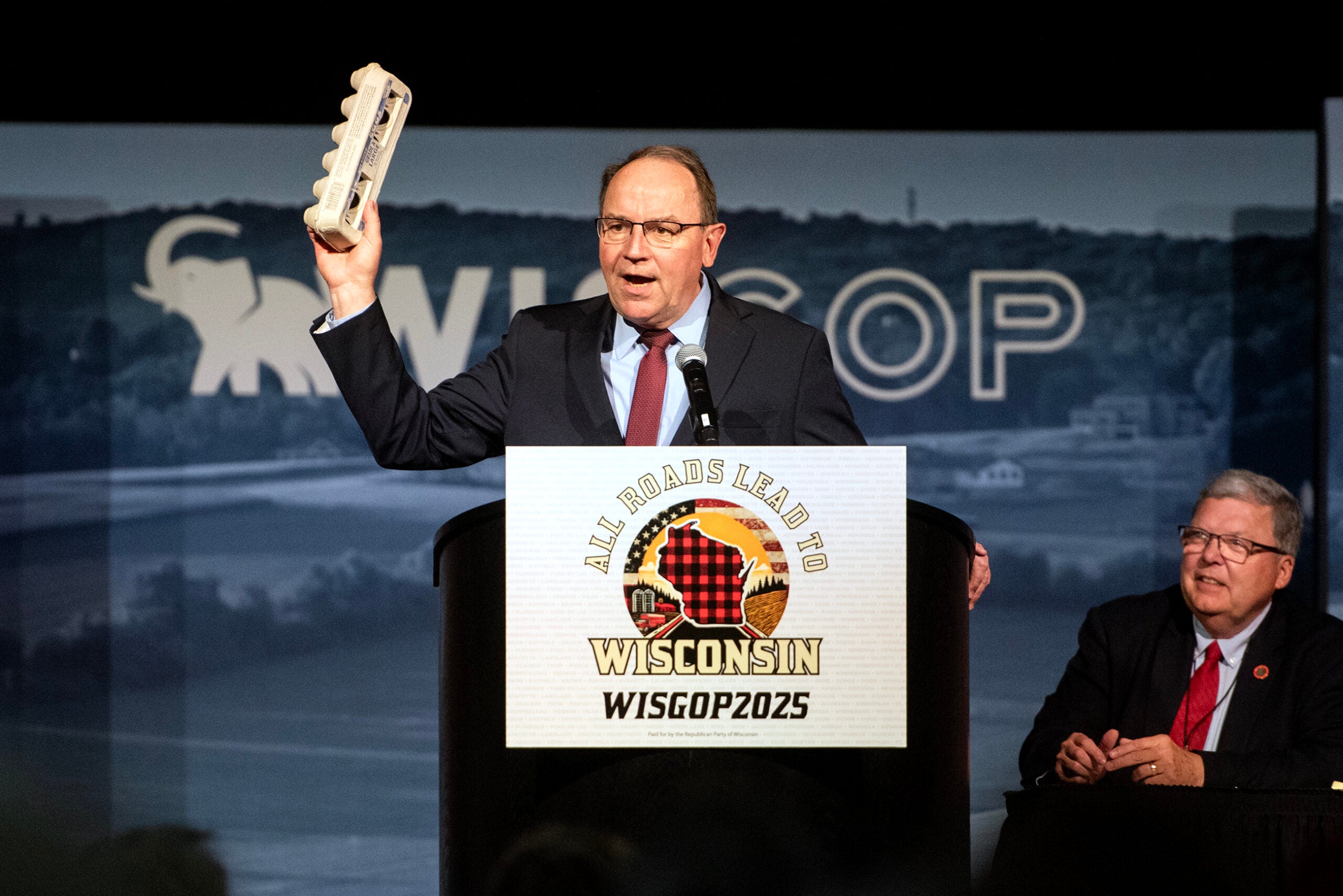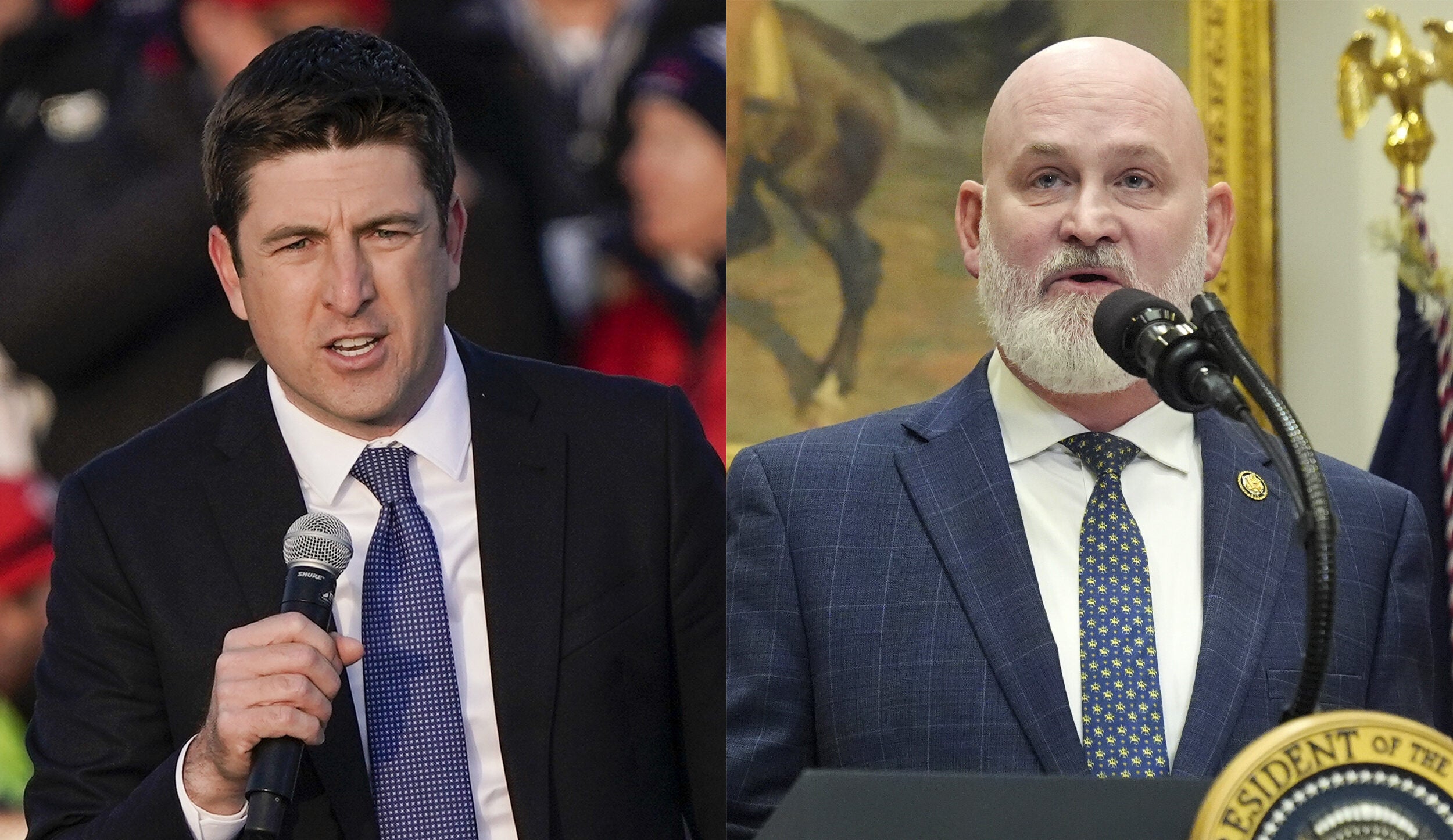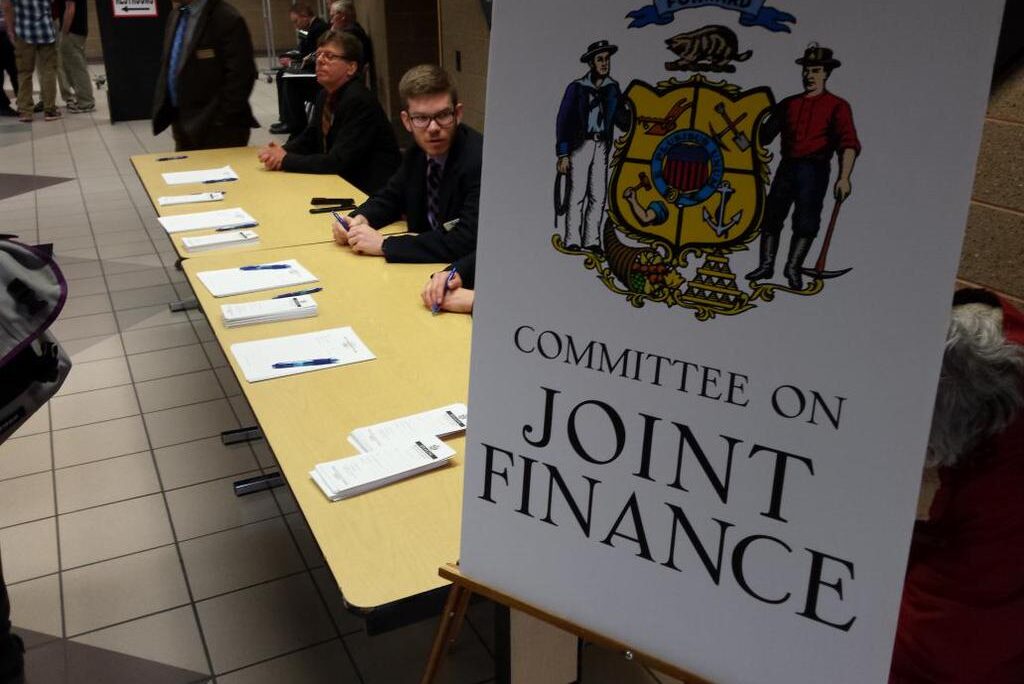Democrat Tricia Zunker, a Ho-Chunk Nation Supreme Court Justice and president of the Wausau Board of Education, says one of her top priorities if she’s elected Nov. 3 would be access to quality rural broadband as many schools are virtual due to the COVID-19 pandemic.
Zunker, D-Wausau, is again facing U.S. Rep. Tom Tiffany, R-Minocqua, after a special election in May to replace Republican U.S. Rep. Sean Duffy for Wisconsin’s 7th Congressional District seat, covering northwestern and central Wisconsin. Zunker lost that election by about 28,000 votes.
She recently spoke with Wisconsin Public Radio’s “The Morning Show” Host Kate Archer Kent.
News with a little more humanity
WPR’s “Wisconsin Today” newsletter keeps you connected to the state you love without feeling overwhelmed. No paywall. No agenda. No corporate filter.
The interview has been edited for brevity and clarity.
Kate Archer Kent: COVID-19 cases are spiking throughout the 7th District and the state. If elected to Congress, what measures would you advocate for to bring the pandemic under control?
Tricia Zunker: We are dealing with this avoidable global health pandemic, which has subsequently resulted in a painful economic recession.
First, we need to make sure there is enough PPE (personal protective equipment) for our frontline workers. It’s inexcusable that nine months into this we don’t have enough protective equipment. We need to increase testing, making it free and accessible, especially throughout this extremely rural district. We need to have hazard pay for our frontline workers. We need to extend unemployment benefits for workers that have lost their livelihood. And we need to make sure that our small businesses and our family farmers have the support they need so that they can stay afloat during this difficult time.
And another thing we need to keep highlighting is that people need to follow the CDC recommendations. We need to make sure everybody’s wearing masks, practicing safe social distancing and reducing travel to necessary travel.
KAK: Health officials say that wearing masks is essential to bringing the pandemic under control, but wearing masks has become a political hotbed. Should the federal government mandate wearing masks in public?
TZ: I understand personal liberty. We can certainly talk about that in other aspects. But there isn’t a personal freedom to expose others to a deadly virus if it can be curbed. That’s what we need to do. It is unfortunate that this has become so politicized because this is science. This is listening to medical experts and looking at the data and understanding that this is one way that we will reduce the spread of contagion.
So whether it should be the federal government or at the state level, more needs to happen. We see that there is a lack of compliance with Gov. Evers’ mask order. We need people to take it seriously, we need to have elected officials that model appropriate behavior. This is not a Democrat issue or a Republican issue, this is an American health and safety issue. And we all need to do our part to reduce the spread of contagion.
KAK: Many schools are virtual because of the pandemic, but experts warn this is creating barriers to learning and unequal learning experiences, especially for students who don’t have access to broadband. How would you address this at the federal level?
TZ: We need to expand rural broadband access, that is absolutely necessary. I saw this throughout the (Wausau School) District before the pandemic hit when I went out in the district and saw how many areas of our expansive district don’t have good rural broadband access. It’s certainly magnified when we had to go to mandated virtual learning in the spring.
My district started virtually in the fall, and we have hubs for broadband access for students that don’t have it. We’re trying to figure out how we can assist those students and those teachers. But really, it’s high time we treat broadband access like the utility that it is. We need it working at high speed, good quality in every household. People are being deprived of opportunity without it. And this is something that we can focus on at the federal level — make it affordable and have it working. I would make this a priority in Congress.
KAK: Democratic leadership has been pushing for a much larger relief package than Republicans. Democrats in the House first passed a $3 trillion package, then a $2.2 trillion. Are Democrats, in your view, being irresponsible in pushing for a very large package they know Republicans won’t support?
TZ: We need to come together, and we need to have something passed that’s going to result in meaningful relief. We have families that are struggling. We have workers that are out of work. We have small businesses on the brink of closure. And it’s not going to be helpful if we have a stalemate in Congress. I would bring to Congress the willingness to work across the aisle to achieve bipartisan solutions that make life better here for people in Wisconsin.
That said, the number that they’re pushing for, we have a lot of needs and it costs a lot of money to help out the businesses, the farmers, the families that need it. So I certainly hope that they’re going to be able to come to an agreement, maybe be able to pass part of something to at least get some relief moving. There is just too much gridlock, too much division. And we need to keep our focus on representing the people.
Wisconsin Public Radio, © Copyright 2026, Board of Regents of the University of Wisconsin System and Wisconsin Educational Communications Board.

